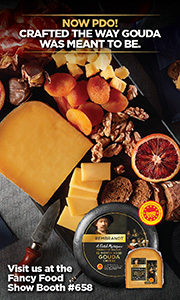
Velvet Taco Tackles Tailgaters With Taco Sets
Score a touchdown with your readers by sharing Velvet Taco’s newest creation: Taco Touchdown Packs, built for football weekends. Velvet Taco — the fan-favorite brand known for its globally inspired, scratch made tacos across nearly 50+ stateside locations — is here to help your readers elevate their game day experience with the launch of its new tailgate-inspired taco sets.
Each Taco Touchdown Pack is designed with tailgate-inspired flavors and the fitting amount of tacos for a touchdown celebration—6 tacos for 6 points, and your readers can even throw in margarita pitchers (made for 6 people) for the full party vibe!
From Oct. 25 to Nov. 30, guests can catch these exclusive online-only packs, available every Friday through Sunday, ideal for pick-up or delivery to fuel their weekend football festivities:
- 6 Buffalo Chicken Tacos for $20 – Just like wings but in taco form! Perfect for that game day kick, made with crisp chicken tenders, house buffalo sauce, carrots, bleu cheese and ranch crema.
- 6 Kobe SmashBurger Tacos for $25 – Juicy burger-inspired tacos that take the classic tailgate staple up a notch. Filled with peppered bacon, cheese blend, lettuce, red onion, tomato, house brined pickles and velvet sauce, this taco has all the makings for a perfect smash burger – all in a hand held taco.
- Small Group Margaritas (frozen or rocks) for $30 – Because nothing pairs better with tacos and touchdowns!
Velvet Taco’s new Taco Touchdown Packs are perfect for football fans and tailgate lovers alike. The convenience of online ordering for pick-up or delivery makes it easy for anyone to enjoy without the hassle of cooking, while adding the small group margaritas will take any football gathering to the next level…
Velvet Taco reimagines global flavors to create a menu full of inventive, scratch-made tacos, taking guests on a sensory world tour. The trailblazing fast-casual restaurant offers 20 imaginative taco recipes, unforgettable sidekicks, such as its signature Red Curry Coconut Queso and classic Elote, along with its namesake Red Velvet Cake and the fan-favorite Kick-Ass Margarita. To keep things interesting, the brand offers a Weekly Taco Feature (better known as the WTF), rolling out a new taco creation each week. Velvet Taco introduced its unique, globally inspired taco offerings to Dallas in 2011.
Since then, the brand has consistently shattered taco-making boundaries with its handcrafted creations, establishing nearly 50 locations across the United States with plans to expand internationally, beginning in London in 2025. Velvet Taco has received dozens of local and national accolades; it was notably awarded Nation’s Restaurant News’ 2016 “Hot Concept” designation and 2020’s MenuMasters Award in the Best Limited-Time Offer category for its Weekly Taco. For more information, including a complete menu, visit velvettaco.com and follow the brand on Facebook and Instagram @VelvetTaco.
For more news of interest to the foodservice industry, subscribe to Gourmet News.
Cal-Maine to Expand Cage-Free Production Capabilities
 On Oct. 4, Cal-Maine Foods’ board of directors approved $40 million in new capital projects to further expand the company’s cage-free production capabilities. The company plans to fund the projects through a combination of available cash on hand, sales of investment securities and operating cash flow.
On Oct. 4, Cal-Maine Foods’ board of directors approved $40 million in new capital projects to further expand the company’s cage-free production capabilities. The company plans to fund the projects through a combination of available cash on hand, sales of investment securities and operating cash flow.
The projects will include the addition of five cage-free layer houses across the company’s locations in Florida, Georgia, Utah and Texas. The company plans to start construction by the end of calendar 2024 and expects the projects to be completed with additional production capacity for approximately 1.0 million cage-free layer hens by late summer 2025. These additions will primarily replace recently retired caged facilities and add to the Company’s cage-free capacity.
The company also provided an update on its conversion of the former Tyson Foods facilities in Dexter, Mo., acquired on March 14. Following the closing, the company began work to remodel and repurpose these assets for use in shell egg production. Cal-Maine Foods has also been working with local contract growers and has commitments that would result in approximately 1.2 million additional free-range hens by fall 2025, with plans to add more capacity in the future.
Sherman Miller, president and chief executive officer of Cal-Maine Foods, Inc., said, “We are pleased to announce these new expansion projects, which support our strategy to increase our free-range production in line with customer demand and expanding state requirements for cage-free eggs. The additional capacity will further enhance our ability to serve our growing customer base. We have made considerable progress with the conversion of the Dexter facilities and look forward to the additional production and distribution capabilities from this location. We greatly appreciate the support we have received from the existing network of local contract growers. As we continue to expand our operations, we remain committed to being the most efficient and sustainable producer of fresh shell eggs and egg products, and we will look for additional opportunities to further advance our growth strategy.”
Cal-Maine Foods, Inc. is primarily engaged in the production, grading, packaging, marketing and distribution of fresh shell eggs, including conventional, cage-free, organic, brown, free-range, pasture-raised and nutritionally enhanced eggs. The Company, which is headquartered in Ridgeland, Miss., is the largest producer and distributor of fresh shell eggs in the nation and sells most of its shell eggs throughout the majority of the United States.
For more news of interest to the food and beverage industry, subscribe to Gourmet News.
2 Publix Officers to Retire; Company Promotes 2 Other Officers
 Publix Super Markets CEO Kevin Murphy announced the retirement of two officers and the promotion of two officers, effective Jan. 1.
Publix Super Markets CEO Kevin Murphy announced the retirement of two officers and the promotion of two officers, effective Jan. 1.
After 46 years of dedicated service, Vice President of Industrial Maintenance and Industrial Operations Purchasing Randy Barber has announced his decision to retire at the end of this year.
Additionally, after more than a decade of dedicated service, Vice President of Facilities Bob McGarrity has also announced his decision to retire at the end of 2024.
“Randy’s dedication to overseeing our non-retail locations and ensuring retail and industrial operations have the equipment, supplies and packaging needed to operate at peak performance has made us a better company. He’s shared his passion for Publix and his vast knowledge of industrial operations with his teams for over four decades,” said Murphy. “Bob’s commitment to the design, construction and maintenance of our stores and equipment has continued to enhance the shopping experience for our customers. He’s perpetuated our culture of working together to accomplish a common goal. We are grateful for Randy’s and Bob’s years of dedicated service and the mentorship they have given to countless associates. We wish them well in their retirements.”
With Barber’s retirement, Publix is pleased to announce the promotion of Director of Industrial Maintenance and Industrial Operations Purchasing John Fisher to vice president of industrial maintenance and industrial operations purchasing.
With McGarrity’s retirement, Publix is pleased to announce the promotion of Architect Program Manager Dave Taulbee to vice president of facilities.
“Preparing talented leaders for the next step in their Publix careers is important to our future success,” said Murphy. “As we continue to grow, we need leaders like John and Dave who are focused on providing the best experience for our customers and associates. I am proud of their accomplishments and look forward to their future contributions.”
About Barber
Barber, 62, began his Publix career in 1978 as a front service clerk in Lakeland, Florida. He transferred to the Lakeland dairy plant in 1982, where he held various positions before being promoted to category manager of supplies purchasing in 2001. In 2009, he was named Lakeland dairy plant general manager; in 2013, he was promoted to director of industrial maintenance. He has been serving in his current role since 2018. Barber and his wife, Sharon, will remain in Lakeland. He is looking forward to spending time with family, hiking, fishing and auto racing.
About Fisher
Fisher, 53, began his Publix career in 2006 as a senior facilities engineer in Lakeland, Florida. In 2021, he was promoted to director of industrial maintenance and to his current role earlier this year. Fisher and his wife, Jennifer, will continue to reside in Lithia, Florida.
About McGarrity
McGarrity, 63, joined Publix in 2012 as director of construction in Lakeland, Florida. He was promoted to his current role in 2017. McGarrity and his wife, Lisa, will remain in Valrico, Florida. He is looking forward to spending time with family and traveling.
About Taulbee
Taulbee, 61, began his Publix career in 2001 as a store design architect in Lakeland, Florida. In 2005, he was promoted to architect manager and to his current role in 2021. Taulbee and his wife, Nicole, will continue to reside in Wesley Chapel, Florida.
Publix, the largest employee-owned company in the U.S. with more than 255,000 associates, currently operates 1,379 stores in Florida, Georgia, Alabama, Tennessee, South Carolina, North Carolina, Virginia and Kentucky. For 27 consecutive years, the company has been recognized by Fortune as a great place to work. In addition, Publix’s dedication to superior quality and customer service is recognized among the top in the grocery business. For more information, visit the company’s newsroom at corporate.publix.com/newsroom.
For more news of interest to the grocery industry, subscribe to Gourmet News.

















